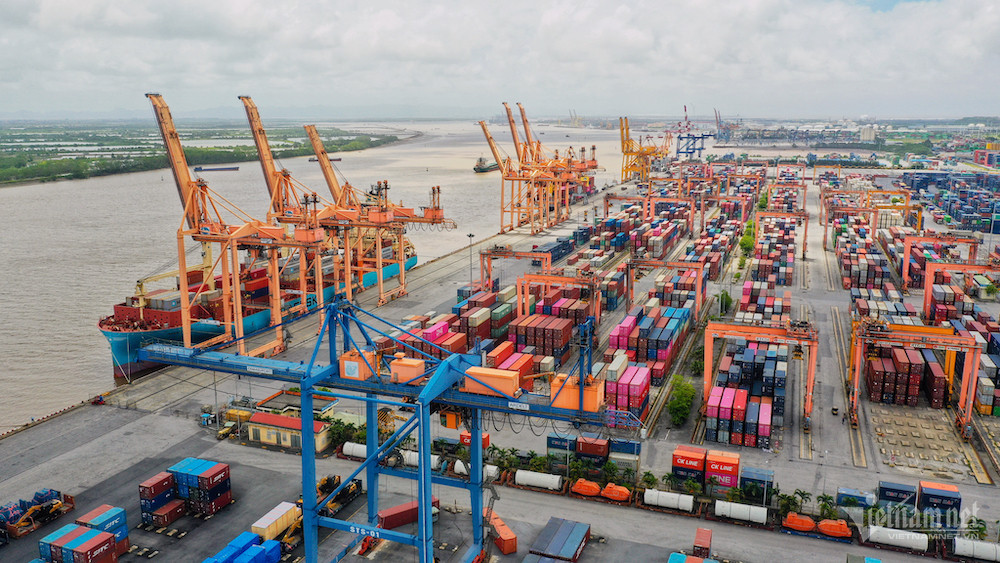
As many as 18,000 businesses are registered to operate in the logistics industry in the southeastern region, which accounts for 46 percent of total logistics firms and undertakes transport of 45 percent of total cargo volume.
However, Dang Vu Thanh, deputy chair of the Vietnam Logistics Service Business Association, said the logistics industry is still facing problems related to uniformity.
Thanh works for a logistics service firm. It has a seaport in HCM City, which is opposite a port belonging to Dong Nai province and next to a port in Binh Duong province.
The problem is that policies applied by the three ports’ authorities differ. The HCM City port collects infrastructure fees, while Dong Nai and Binh Duong do not. And the differences in policies affect the logistics industry's development.
VCCI (Vietnam Confederation of Commerce and Industry) chair Pham Tan Cong said that logistics firms have invested in infrastructure and technology, but they still have not connected infrastructure among cities and provinces in the region, and between production and processing zones, IZs and ports, airports and markets.
Meanwhile, according to the director of the Import-Export Department under the Ministry of Industry and Trade (MOIT), Tran Thanh Hai, Laos and Cambodia are planning to make investments and accelerate the development of their logistics industry.
Laos has no sea border and is considered a ‘depression area in logistics’. However, its logistics industry has developed well in recent years, especially due to a railway line connecting with China. It has become the central railway route in Southeast Asia, and it will connect with Thailand in the future, direct to the sea, and is expected to become a logistics center of the region.
Cambodia has a large volume of goods transiting at Vietnam’s port in the southeastern region. However, it is planning to improve exploitation of the coastal city Sihanoukville and other waterway routes to be self-reliant in logistics and cargo transport.
“Facing the East Sea is a great advantage for Vietnam, and if it cannot exploit all these factors, it will lose all the advantages in the logistics industry,” Hai warned.
Nguyen Van Tho, chair of Ba Ria-Vung Tau province, said that the development of logistics services in the localities do not satisfy the requirements to become an important center in maritime transport and multimodal transportation.
However, Tho said, transport and logistics services in the province will grow well thanks to the formation of important transport routes connecting the eastern and western parts of the southern region.
Luong Bang